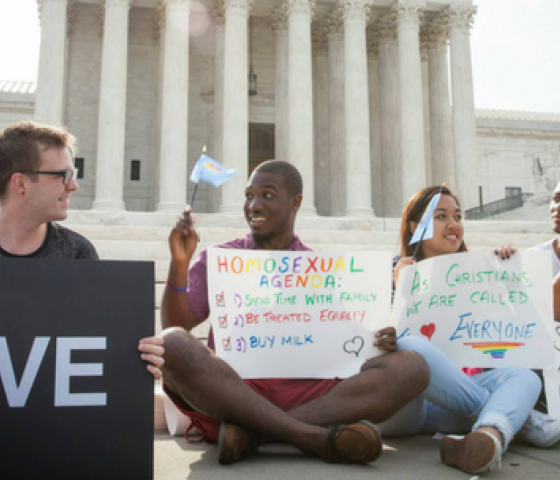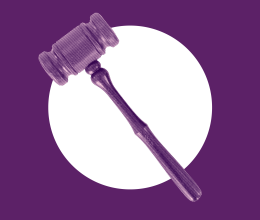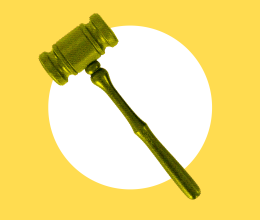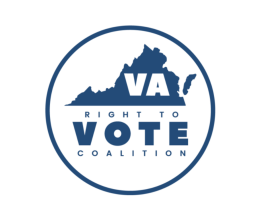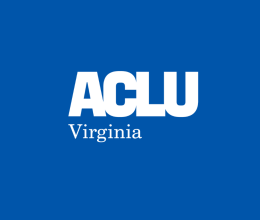Registrars throughout the state urged to abide by the new law during next week’s Democratic Party primary.
Richmond, VA- Three Virginia-based free speech organizations filed papers in federal court yesterday seeking dismissal of their lawsuit challenging the Virginia State Board of Elections’ policy which interpreted state law to prohibit voters from wearing political messages in polling places. The policy, adopted shortly before the November 2008 elections, drew widespread criticism from both voters and constitutional rights organizations.
The lawsuit became unnecessary recently when Governor Kaine signed into law a bill preventing voting officials from “ prohibit[ing] a person who approaches or enters the polling place for the purpose of voting from wearing a shirt, hat, or other apparel on which a candidate's name or a political slogan appears or from having a sticker or button attached to his apparel on which a candidate's name or a political slogan appears.”
The Thomas Jefferson Center for the Protection of Free Expression, The Rutherford Institute and the ACLU of Virginia had argued that the Board of Elections’ policy violated the First Amendment rights of voters and was inconsistent with Virginia’s electioneering statutes.
“The Virginia General Assembly brought the Commonwealth to its senses by reversing this unnecessary restriction on political free speech. This shows what the average citizen can do by standing up to the government and speaking truth to power,” said John W. Whitehead, President of The Rutherford Institute. “It is my hope that barriers to freedom of speech will not be erected by the Commonwealth of Virginia again.”
“The objectives of the lawsuit have now been met,” said ACLU of Virginia Executive Director Kent Willis, “so there was no need to pursue the case. We’re still trying to figure out how the State Board of Elections missed the target so badly on this one. The General Assembly’s quick and decisive response shows that the Board of Elections’ interpretation of the law was just plain wrong.”
“Our only concern now is that the new law does not technically take effect until July 1,” added Willis. “We’re urging registrars to follow the new law during the Democratic Party primaries next week, as it simply makes no sense to enforce an interpretation of the law that served no useful purpose and that was overwhelmingly rejected by the General Assembly at its first opportunity.”
The lawsuit was filed last December on behalf of voters Jill Borak of Fairfax County and Charles Epes of Richmond, who wore Obama campaign paraphernalia to the polls on Election Day 2008 and were told to remove them or cover them up.
In a separate case, the ACLU represented a Madison County voter who was arrested for wearing a McCain T-shirt to the polls. The county prosecutor dropped the charges after the General Assembly passed the new law.
Adopted by the State Board of Elections on October 14, 2008, the policy on campaign paraphernalia in polling places was an interpretation of an existing state law against “exhibit[ing]… campaign materials to another person” near or in a polling place as a ban on voters’ attire that expresses a view on particular candidates or political parties. Prior to the adoption of the SBE policy, some registrars viewed the law as prohibiting such attire, while others did not.
Guidelines issued by the Board of Elections on October 23 created confusion for election officials and voters alike. According to the guidelines, the measure was “not intended to keep a qualified voter from voting.” Yet election officials were instructed to ask voters to remove or cover political statements that are worn as part of their attire. Voters who refused were to be allowed to vote, but in such instances the registrar was expected to file an incident report with the local Commonwealth’s Attorney. It was this directive that led to the prosecution of the Madison County voter who refused to remove her McCain t-shirt.
Telephone calls to the three organizations indicated that the policy was enforced inconsistently by jurisdictions across the state, with election officials having widely varying interpretations of what the policy required.
A copy of the complaint can be found at http://www.acluva.org/docket/pleadings/borak_complaint.pdf
Contacts:
| Kent Willis Executive Director ACLU of Virginia 530 E. Main St., Ste 310 Richmond, VA 23219 804-644-8022 | John W. Whitehead President The Rutherford Institute 1440 Sachem Place Charlottesville, VA 22901 434-978-3888 | Thomas Jefferson Center for the Protection of Free Expression Josh Wheeler Associate Director 400 Worrell Drive Charlottesville, VA 22911 434-295-4784 |
